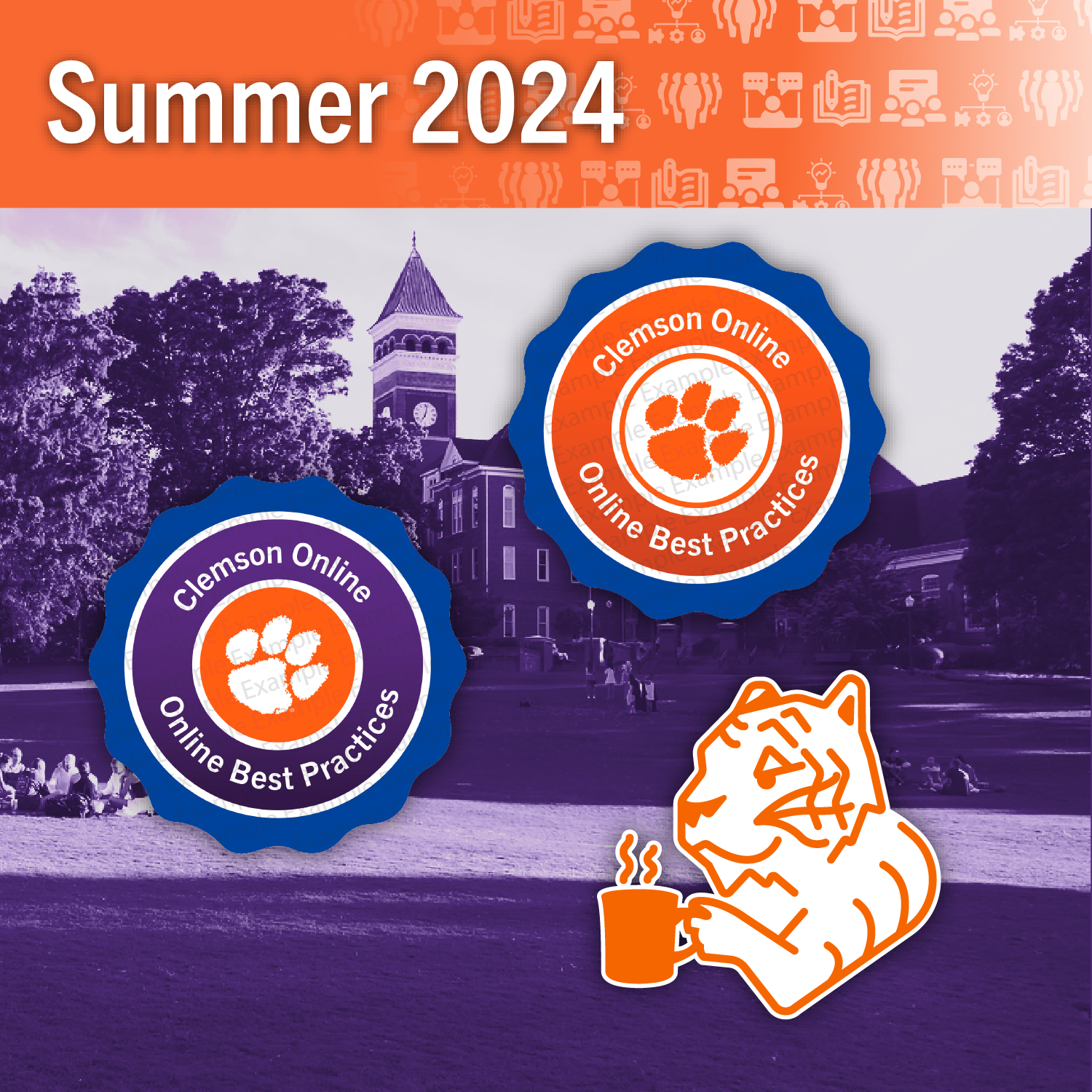Establishing good communication in online courses is essential for engaging learners. They need to know that you are invested in them and their success in the course as well as how you plan to interact with them. Here are some of our suggestions for setting the tone and clarifying expectations.
Introductory Videos
Communication in an online course starts with the instructor introduction video. There should be a follow up video with an outline of the course expectations. These two videos will set the tone for the entirety of your online course. The point of these videos is to build credibility and a connection with students.
The introduction video should go beyond a recitation of credentials and teaching experience. Yes, you should definitely provide your personal and professional background, but that background should be conveyed in a creative way. It needs to show personality. Be authentic and up front in this introduction video so that students will actually see a passion for teaching rather than you telling them about your passion for teaching. For example, if you are someone who is humorous make sure your intro has humor in it. If your students know about your interests, your career, and your charisma it is more than likely some will be able to relate to you. They will be more likely to want to get to know you and take interest in the course.
Your enthusiasm and reason for teaching may be obvious to you but it is not always clearly communicated on an online course. Be up front about course expectations and how you operate as a teacher and as a person. It is easy for students to disengage from an online classroom and online instructor. If they see you as a person instead of someone behind a screen, then this will boost overall communication in the course.
Pathways for Communication
Set up the pathways for communication clearly in the introduction video and in the syllabus. Do you prefer email or Canvas communications? When should they expect a reply, and when is it ok for them to reach out again if no response? What kinds of updates and feedback should they anticipate from you throughout the course? Encourage your students to ask questions by being available and showing genuine effort to help. The more available and human you appear to students, the more they will give you feedback on the course and their progress.
Building a genuine connection in an online classroom takes extra effort because of the lack of physicality. Canvas has the tools that you can use to facilitate this effective communication. Canvas announcements are a great way to clearly communicate direction or movement throughout the course. Discussion boards, Zoom meetings for office hours, and Kaltura videos are an easy way for students to get a good understanding of who you are and to communicate with you.
It is inevitable that miscommunication will occur. If you have a strong foundation for the communication pathways that have been set up early, then communication mishaps will resolve themselves more easily. According to the Faculty Focus Podcast, a long line of research has shown that college professors can come off disagreeable or unfriendly. This can be exacerbated by the nature of an online course. With a strong emphasis on authenticity and personality in an introduction video, students will be less likely to view you as anti-social or aloof. Students will also be more forgiving if you communicate mistakes as they happen. Being out of touch will leave students wondering if you are paying attention. Be up front, plan ahead, and be genuine when plans go awry.
When students feel connected they prepare better for the class, participate more, and are more likely to seek out information or help from the instructor. Students behavior and propensity to learn increases when there is a high effort from you letting them get to know you while getting to know them.

Get Ready for Summer 2024

Do you plan to teach this summer? Clemson Online is proud to announce this year’s Summer teaching initiative. We have timely opportunities for instructors to gain experience in online course creation, teaching with Canvas, and the Quality Matters course improvement process.

Upcoming Events
Workshop Wednesday: Microsoft Accessibility Checkers
Wednesday, March 13th, 1:30-2:30 PM
Join this training to learn more about Microsoft accessibility checkers! Accessibility is crucial in every class. In this training, our Accessibility Coordinator will guide you through using the helpful accessibility checker in Microsoft Word and PowerPoint.
Facilitated by Michelle Tuten, Accessibility Coordinator.
Registration: Workshop Wednesday: Microsoft Accessibility Checkers.
Modality: Virtual and synchronous—an Outlook Calendar invite, with the Zoom link, will be sent.
Designing A Flipped Classroom
Wednesday, March 27th, 1:30-2:30 PM
A flipped classroom design has learners engage with the course content before the scheduled class time. Tune into this training to discover how Canvas can help you utilize a flipped classroom design!
Facilitated by James Butler, Digital Learning Strategist.
Registration: Designing a Flipped Classroom in Canvas.
Modality: Virtual and synchronous—an Outlook Calendar invite, with the Zoom link, will be sent.
Clemson Online Spring 2024 Events Calendar

Review our Spring 2024 Events Calendar to see what Online Instruction Development opportunities await!
We have a robust lineup of topics and live training formats to support your use of Canvas and other e-learning tools. Topics cover demonstrations of using Kaltura, presentations on group assignments in online courses, and workshops to get your Canvas site ready to teach!
All of our live training is recorded. Registrants will automatically receive a link to that day’s video after it has been processed.
Contact Millie Tullis with any questions regarding these sessions.

Clemson Online – Where Tech and Teaching Meet
